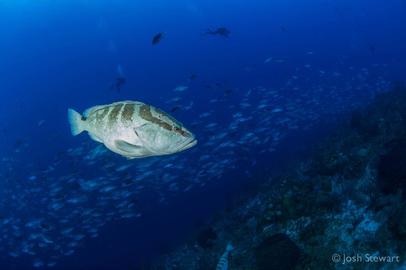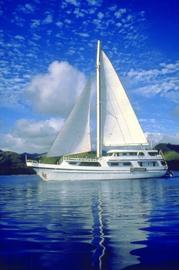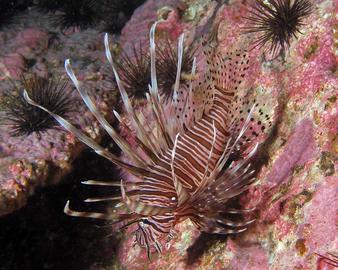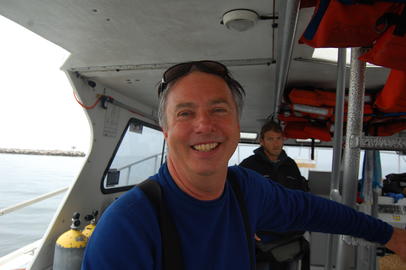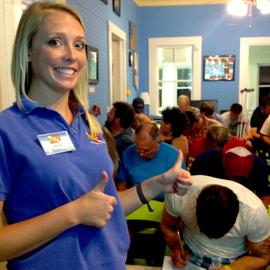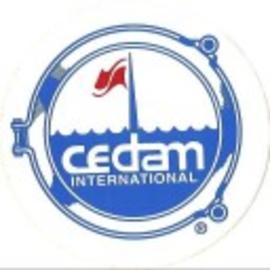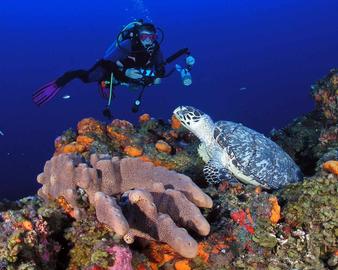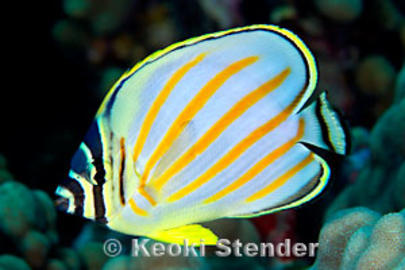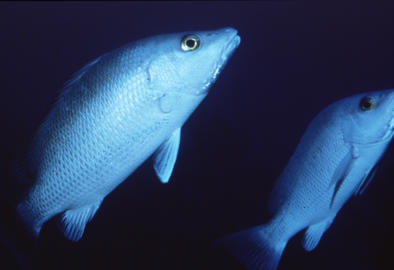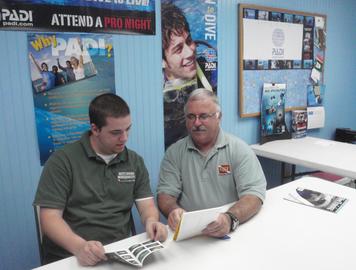REEF scientists and volunteers just wrapped up another season of the Grouper Moon Project, a collaborative research effort with the Cayman Islands Department of the Environment (CIDOE). Our research focuses on Little Cayman, which has one of the largest (and one of just a few) known spawning aggregations of Nassau Grouper in the Caribbean. Over 4,000 grouper amass in one location for 7-10 days following winter full moons.
If you haven't yet booked your space on one of our 2013 REEF Field Surveys, don't delay. They are filling up fast. A last minute opening is available on the Fiji trip aboard the Nai'a liveaboard, May 11-21 - we just had a cancellation, so if you want to join REEF Founder Paul Humann, REEF Director of Science Christy Semmens, and a boat full of enthusiastic South Pacific fishwatchers, get in touch with our travel agent at Caradonna right away - 1-877-295-REEF (7333) or REEF@caradonna.com.
REEF Director of Special Projects, Lad Akins, has co-authored several recent scientific publications on the invasive lionfish in the western Atlantic, including:
REEF members are at the heart of our grassroots marine conservation programs. Over 43,000 divers, snorkelers, students, and armchair naturalists stand behind our mission.
When University of Kansas graduate Keri Kenning joined REEF in August 2012 as a Marine Conservation Intern, Keys residents constantly reminded her, “You’re not in Kansas anymore.” Five months, sixty dives, and zero lionfish stings later, Keri has abstained from clicking those ruby red heels together and returning to Kansas. She is staying at REEF headquarters in Key Largo as the new Communications and Affiliate Program Manager. Keri graduated in May 2012 from the University of Kansas with a Bachelor of Arts in Biology and University Honors.
REEF is once again partnering with CEDAM International to support an educator to participate in one of our REEF Trips. The selected Lloyd Bridges Scholar will join Paul Humann on the Little Cayman Field Survey in July 2013. The goal of the scholarship program is two-fold: One, to have educators experience the wonders of the underwater world and then be able to share these wonders with his or her students or constituents. Two, to have these inspired individuals go out and do what they can to help protect one of the world’s most fragile ecosystems.
REEF members are at the heart of our grassroots marine conservation programs. Over 43,000 divers, snorkelers, students, and armchair naturalists stand behind our mission.
This month we highlight Carol Cox. Carol joined REEF in 2010 and has conducted 159 surveys. Carol is a member of the Tropical Western Atlantic REEF Advanced Assessment Team and has been an active volunteer and instructor in REEF's Fishinar series. Here's what she had to say about REEF:
When and how did you first volunteer with REEF or become a REEF member?
New Fishinars continue to be added, and upcoming sessions include common butterflyfishes of Hawaii, a California Invertebrate series, plus several on Caribbean fish families (including those pesky Damsels)! Check out the Webinar Training page (www.REEF.org/resources/webinars) for the most up-to-date listing. These popular online training sessions provide fishie fun in the comfort of your own home. Fishinars are free, and open to all REEF members. You need to register for each session you want to attend.
Climate change is expected to cause a poleward shift of many temperate species, however, a better understanding of how temperature and species' life histories interact to produce observed adult range is often lacking. REEF data were featured in a new publication on this topic in the scientific publication, Journal of Experimental Marine Biology and Ecology.
REEF is proud to partner with over 270 dive shops, dive clubs, individuals, and other organizations as REEF Field Stations. For more information on how to find one near you, or to become a Field Station in your area, visit the Field Station Directory.

